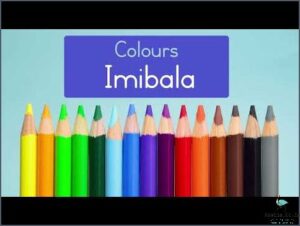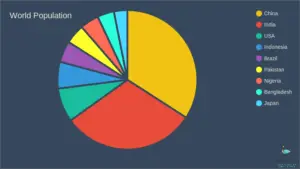
Afrikaans and Dutch are two closely related languages, both belonging to the West Germanic language family. Afrikaans is a daughter language of Dutch and was developed from Dutch dialects in the 17th century. Although the two languages are very similar, there are several differences between them.
The most obvious difference is in the pronunciation. Dutch is pronounced with a softer sound and there is a greater emphasis on vowels and syllables. Afrikaans, on the other hand, is pronounced with a more nasal sound and has a greater emphasis on consonants.
Another difference between Afrikaans and Dutch is in the grammar and syntax. The grammar of Afrikaans is much simpler than that of Dutch, making it easier to learn. Additionally, Afrikaans has dropped some of the more complex grammatical rules that Dutch still uses.
In terms of the vocabulary, both languages share a lot of similarities. There are many words that are used in both languages and some that are only used in one language. However, over the years, Afrikaans has adopted many words from other languages, such as English and Portuguese, which are not found in Dutch.
Despite these differences, both Af
Contents
Afrikaans Vs Dutch

Afrikaans is a language that is derived from Dutch, but is distinct in its own right. It is the mother tongue of many South Africans and is spoken by an estimated 8 million people. Afrikaans has borrowed heavily from Dutch, but has also incorporated words from Malay, Portuguese, German and even Khoisan languages. Both languages have similar grammar structures and share a large percentage of cognate words, but Afrikaans has a more simplified spelling system, as well as its own unique vocabulary and idioms. Although the two languages are related, they are distinct and different in many ways. In terms of pronunciation, Afrikaans is spoken with a softer, more melodic intonation than Dutch, which is often harsher and more guttural. Furthermore, Afrikaans has a much larger corpus of literature than Dutch and is today an official language of South Africa.
Historical Background of Afrikaans and Dutch
Afrikaans and Dutch are two languages that have been intertwined for centuries. Both languages have a long and complicated history, but it is important to understand how they are related in order to better appreciate the differences between them.
Afrikaans is a language that developed in South Africa in the 1600s. It is a creole language, derived from 17th century Dutch settlers in the Cape Colony. At the time, Dutch was the language of the Dutch East India Company and its settlers. Through the process of creolization, settlers mixed Dutch with the local indigenous languages, creating a new language known as Afrikaans.
In the early days, Afrikaans was mainly spoken by the lower classes and slaves in South Africa. The language was seen as a simplified version of Dutch, and it was not until the 20th century when Afrikaans began to be recognized as its own language, distinct from Dutch. Today, Afrikaans is the mother tongue of over 6 million South Africans.
Dutch, on the other hand, is a language that originated in the Netherlands and is spoken by about 28 million people worldwide. It is a Germanic language, related to English and German. Dutch has been the official language of the Netherlands since the 16th century.
Despite the two languages being related, there are some notable differences between Afrikaans and Dutch. Afrikaans has fewer grammatical rules than Dutch and is simpler in terms of grammar and vocabulary. Moreover, Afrikaans has adopted many words from the African languages that were mixed in with Dutch during the creolization process. In contrast, Dutch has been more strongly influenced by Latin and is much more formal and complex.

Despite their differences, Afrikaans and Dutch are still very much related. They both share many similar words and phrases, and Afrikaans has been heavily influenced by Dutch grammar. In addition, both languages have a long and rich history, and have both been used to create unique and vibrant cultures in South Africa and the Netherlands.
Similarities and Differences Between Afrikaans and Dutch
Afrikaans and Dutch are two languages that have a lot of similarities, but also a few notable differences. Both belong to the West Germanic language family and are closely related, with Afrikaans being a daughter language of Dutch. Despite their similarities, there are some distinct differences between the two languages.
In terms of pronunciation, Afrikaans has a simpler phonological system than Dutch. Afrikaans also has a smaller vowel inventory, fewer diphthongs, and fewer consonant clusters. As a result, Afrikaans is considered to be an easier language to learn than Dutch. Furthermore, Afrikaans has a more open syllable structure than Dutch, meaning it is easier to pronounce longer words.
In terms of grammar, the two languages are very similar. Both languages share the same basic sentence structure, with subject-verb-object being the most common. The two languages also share many of the same grammatical rules, such as verb conjugation and noun declension. However, there are some minor differences. For example, in Afrikaans, the verb conjugation is much simpler than in Dutch and there are fewer irregular verbs.
In terms of vocabulary, many words in Afrikaans are derived from Dutch, and the two languages share a lot of similar words. However, there are also some differences, as Afrikaans has adopted some words from other languages, such as Malay, Indonesian, Khoisan, and African languages.

Overall, Afrikaans and Dutch have a lot of similarities, but also a few notable differences. From pronunciation to grammar to vocabulary, the two languages are very similar, but there are also some distinct differences. Understanding these differences can help those studying both languages to better identify and appreciate the nuances between them.
Pros and Cons of Afrikaans and Dutch
Afrikaans and Dutch are two languages that have a lot of similarities, but also many differences. Both languages are a part of the West Germanic language family, but Afrikaans is a daughter language of Dutch, and so the two languages have a very close relationship. To better understand Afrikaans and Dutch, let’s take a look at the pros and cons of each language.
When it comes to the pros of Afrikaans and Dutch, one of the biggest advantages is the common vocabulary that they share. While the two languages have some different words, they have many words that are very similar, making it easier to learn one language if you already know the other. Additionally, both languages have a relatively simple grammar structure, which makes them easier to learn.
One of the biggest cons of Afrikaans and Dutch is that they are both languages that are spoken primarily in Europe, which can be a disadvantage if you’re trying to use the language to communicate with people from other regions. Additionally, both languages have a fairly limited range of dialects and accents, so it can be difficult to find nuanced conversations in the language.
When it comes to choosing between Afrikaans and Dutch, it really depends on what you’re trying to accomplish. If you are looking for a language to communicate with people from Europe, then either language could be a great option. However, if you’re looking for a language to communicate with people from other regions, then you may find that Afrikaans or Dutch are not the best choices.
Conclusion
There is no one definitive answer to the question of whether Afrikaans or Dutch is better. Each language has its own unique features and benefits that make it advantageous for different purposes. Ultimately, the decision of which language to learn depends on the individual’s needs and goals.



